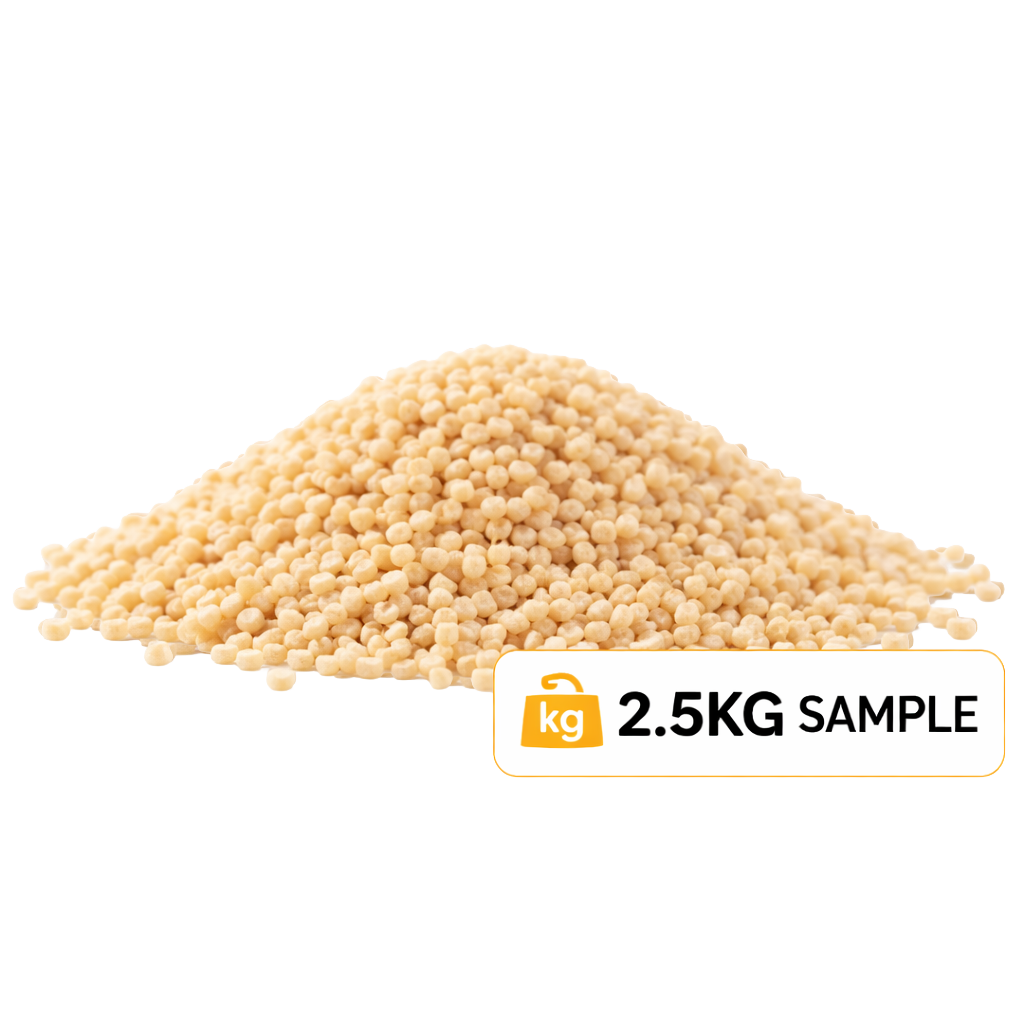Tianan Biologic Material Co. Ltd.
Enmat Y1000P PHBV - Sample
Enmat Y1000P PHBV - Sample
Couldn't load pickup availability
Sample 2.5KG
Manufacturing Process
Polyhydroxybutyrate-co-valerate (PHBV) is a co-polymer within the polyhydroxyalkanoates (PHA) family, produced through a sophisticated microbial fermentation process. The production begins by providing microorganisms with a carbon feed source, such as dextrose or glucose, combined with a small amount of propionic acid. Essential nutrients, including nitrogen, phosphorus, and oxygen, are added to support the growth and multiplication of these microorganisms.
Once the microorganism population reaches a critical level, the nutrient supply is intentionally reduced, creating an imbalance that stresses the microorganisms. In response to this stress, the microorganisms start converting the available extracellular carbon source into a reserve energy form through a series of enzymatic pathways. This reserve energy is stored as polymeric inclusions within the microbial cells. Under optimal conditions, these inclusions can account for 80% to 90% of the cell's composition as PHBV. The process is completed when the polymer content within the cells is maximized, after which the polymer is extracted from the cells.
Biodegradability
PHBV is highly biodegradable and can be broken down by microorganisms in soil or water at ambient temperatures. This degradation results in the production of carbon dioxide and water, making PHBV an excellent material for home composting, especially in regions where industrial composting facilities may not be available. Additionally, PHBV can undergo anaerobic digestion, where it is broken down in the absence of oxygen, producing methane gas. This methane can be captured and utilized as a renewable energy source, further enhancing the environmental benefits of PHBV.
Material Properties
PHBV exhibits several important material properties, making it suitable for various applications:
- Heat Deflection Temperature (HDT): 157-165 °C (ISO 7619)
- Young's Modulus: 1600-2100 MPa
- Elongation at Break: 3.8%
- Melting Point: 175-180 °C
- Co-Polymer Content: V content 1-2%
These attributes underline PHBV's suitability for diverse applications, combining biodegradability with robust material performance.
Share


